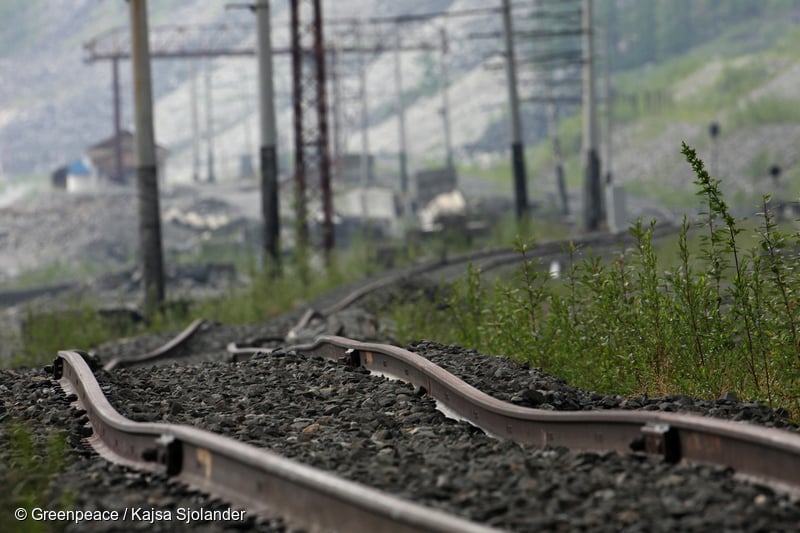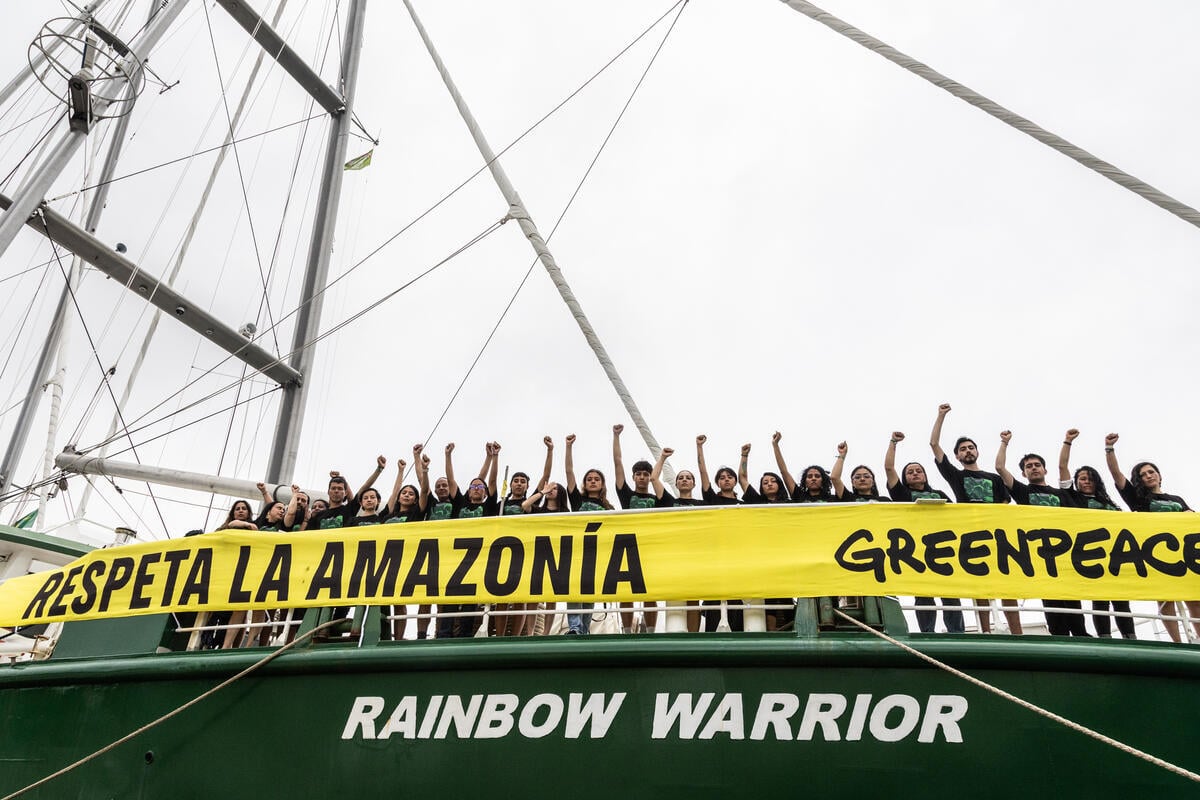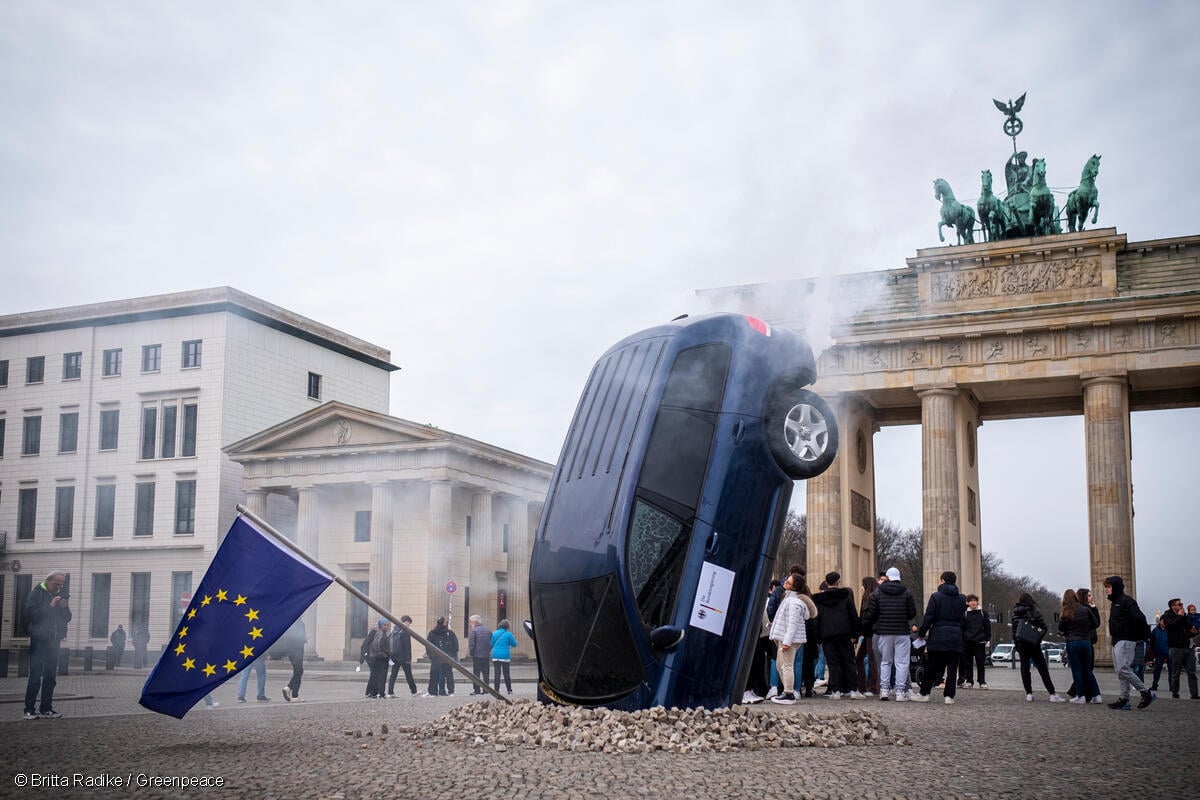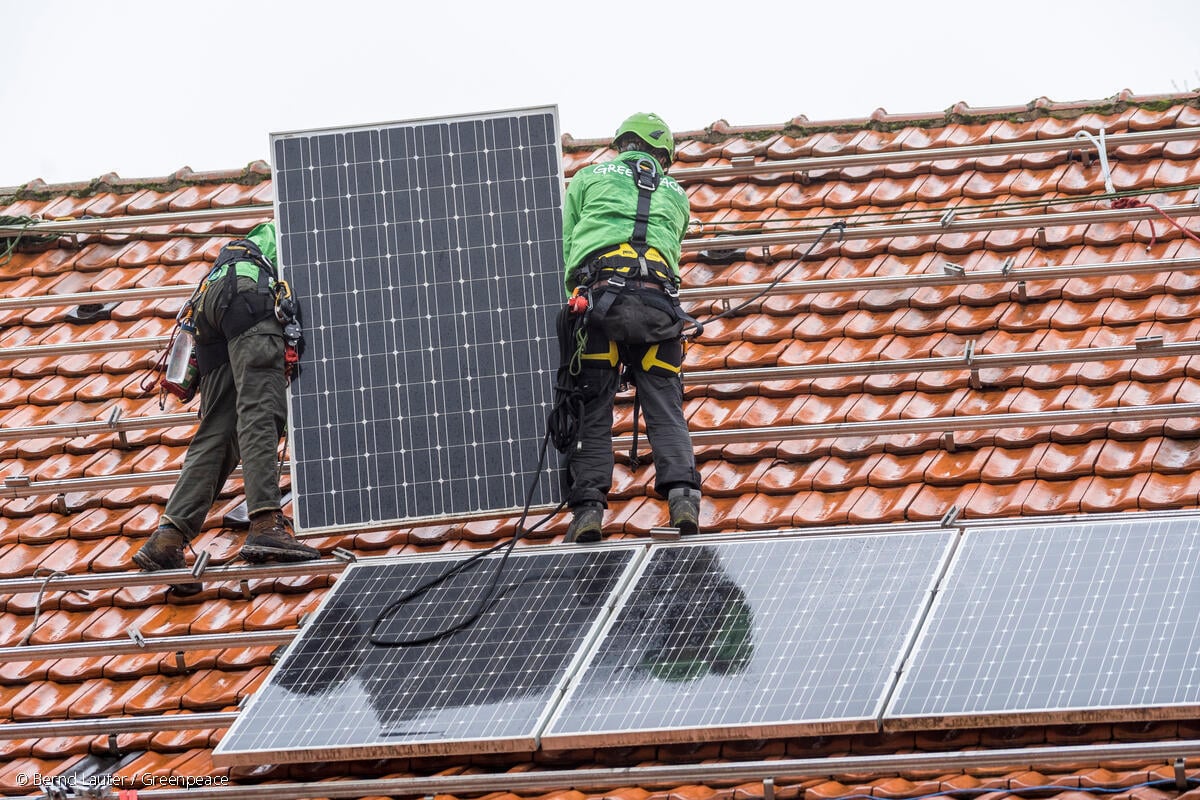
Brussels – EU transport ministers meeting in Luxembourg today have acknowledged the need to shift from air and road travel to rail to decarbonise transport, but failed to take urgent and concrete action, said Greenpeace.
Transport ministers acknowledged today that major investment in international long-distance rolling stock is required, and encouraged replacing flights with trains. They called on the European Commission to study possible European-level schemes to support rail operators. However, despite the publication this week of official data showing that transport emissions have been rising while other sectors’ emissions are falling, ministers failed to table any tangible proposals.
Greenpeace EU climate and transport campaigner Lorelei Limousin said: “If all they do is talk, then governments are responsible for the climate breakdown that’s spiralling out of control. Pollution from cars and planes continues to grow, but ministers are dragging their feet. It’s time for the EU to make real commitments to shift transport from air and road to rail. We need to ban short-haul flights where there are cleaner alternatives, and to prioritise investment in trains over planes. Upgrading tracks and rolling out new services, including night trains, would create sustainable jobs and lead to better access to mobility for all.”
2021 is the EU Year of Rail, and ahead of today’s meeting Greenpeace and 35 other organisations called on EU transport ministers to commit to five specific measures, such as launching 30 new connections to start creating a European network of day-time and night trains, and scrapping air travel subsidies.
*** Consult the full list of Greenpeace measures to put Europe back on track ***
Several countries are also calling on the European Commission to set a date for the phase-out of sales of new diesel and petrol cars and vans. Greenpeace has called for an end to sales of new internal combustion engine cars and vans by 2028, while simultaneously shifting mobility patterns towards more sustainable modes like cycling, public transport and shared vehicles, to meet the climate goal of limiting global heating to 1.5°C.
The Commission is expected to review the EU’s tax exemption for the commercial use of kerosene, a jet fuel, in July, and will present a new action plan for cross-border and long-distance rail in the second half of 2021.
*** Read what ministers agreed on the future of rail here ***
Contacts:
Lorelei Limousin – Greenpeace EU climate and transport campaigner: +32 (0)477 79 04 15, [email protected]
Greenpeace EU press desk: +32 (0)2 274 19 11, [email protected]
For breaking news and comment on EU affairs: www.twitter.com/GreenpeaceEU
Greenpeace is an independent global campaigning organisation that acts to change attitudes and behaviour, to protect and conserve the environment and to promote peace. Greenpeace does not accept donations from governments, the EU, businesses or political parties.
EU Transparency Register: 9832909575-41



